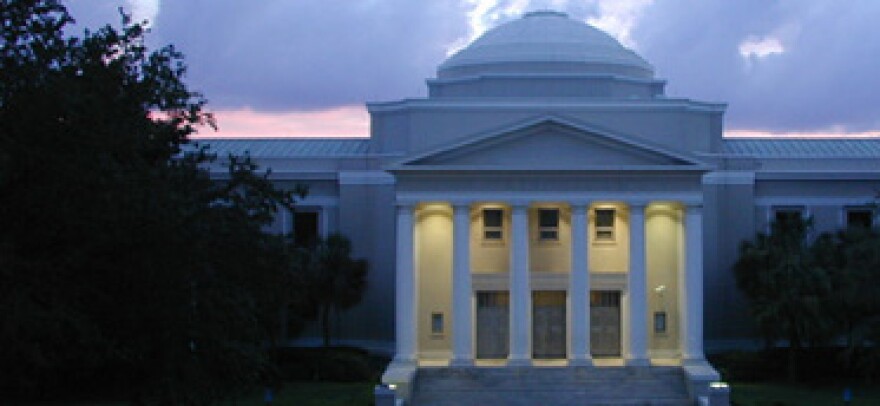http://stream.publicbroadcasting.net/production/mp3/wfsu/local-wfsu-920655.mp3
Tallahassee, FL – The Florida Supreme Court is considering whether three proposed constitutional amendments should go back on the Nov. 2 ballot. As Margie Menzel reports, they're high-profile cases, including one - on how lawmakers will redraw congressional and legislative voting districts in 2012 - that the House Speaker-designate argued himself.
In an unusual move, Winter Park Republican Dean Cannon, who's expected to become Speaker in November, argued before the high court on behalf of Amendment 7, which deals with redistricting and would override anti-gerrymandering provisions in Amendments 5 and 6, two citizen initiatives also slated for the ballot. Cannon said Amendment 7 would protect minority representation and give lawmakers flexibility that 5 and 6 would take away. Attorney Ron Meyer argued against 7 on behalf of the NAACP.
"Amendment 7 was crafted with one specific purpose in mind," said Meyer, "and that was to undo what 5 and 6 were doing."
Amendments 5 and 6 would bar lawmakers from favoring incumbents or political parties when drawing voting-district boundaries, as occurs every ten years. Legislative leaders criticized them, however, and pushed through Amendment 7 in the 2010 session. Then last month, Leon Circuit Court Judge James Shelfer struck 7 from the ballot, saying it would mislead voters. On Wednesday, Supreme Court Justice Peggy Quince asked Cannon if Amendment 7 makes any reference to 5 and 6.
"No, Your Honor." [Quince: "Does the voter know, reading this amendment, that this somehow involves 5 and 6 or negates 5 and 6?"] "Uh, they will not -" [Quince: " If you read just this amendment, would you know that?"] "Not at all, Your Honor. And this court has laid down the rule that it is not a requirement of a prospective amendment to anticipate or describe any other prospective things that may be added to the Constitution later."
But Meyer said its inclusion on the ballot would favor those already controlling the Legislature.
"It's particularly invidious here," he said, "where you have a ballot amendment that sort of mirrors the ballot-amendment titles that Amendments 5 and 6, which do create standards, have. In other words, the Amendment 7 ballot title says it's creating standards, when in fact, it's taking away the only standard that's there, and that's contiguity."
Contiguity refers to a voting district that is all of a piece, with no part that isn't touching the whole. Critics say Amendment 7 is so vague that even the present requirement for contiguity would be lost. Justice Fred Lewis asked Cannon whether Amendment 7 juggles language to override such standards.
"No, Your Honor." [Lewis: "We're not?"] "Not at all, because if we had written a summary, in all of the cases that this court has handed down, the wordsmithing can only occur if the summary fails to faithfully articulate the text. Here, we give the voter the text. There can be no wordsmithing. There is no editorializing. There is no emotional appeal. We gave the voter the very words to avoid any potential infirmity from wordsmithing."
The high court also heard arguments to reinstate Amendment 9, which would exempt Florida from the health care overhaul passed by Congress in March. It, too, had been passed by the 2010 Legislature and tossed by Judge Shelfer, who called it "manifestly misleading" to voters. Assistant Attorney General Russell Kent, arguing for 9, acknowledged the confusion but said it could be fixed by replacing the summary with the full amendment text on the ballot. His counterpart, Gary Early, said that was beyond the court's authority. Chief Justice Charles Canady:
"Can't you look at what they passed and know, beyond a shadow of a doubt, that their preeminent intent and purpose was to give the people of Florida an opportunity to vote on this particular amendment to their constitution related to health care?"
Also heard by the high court Wednesday: Amendment 3, which would provide a temporary additional exemption on recently-purchased homesteads for people who haven't owned a principal residence for eight years. Rulings on all three amendments are expected by the end of the month, in time to be printed on the November ballot if the court so orders.

